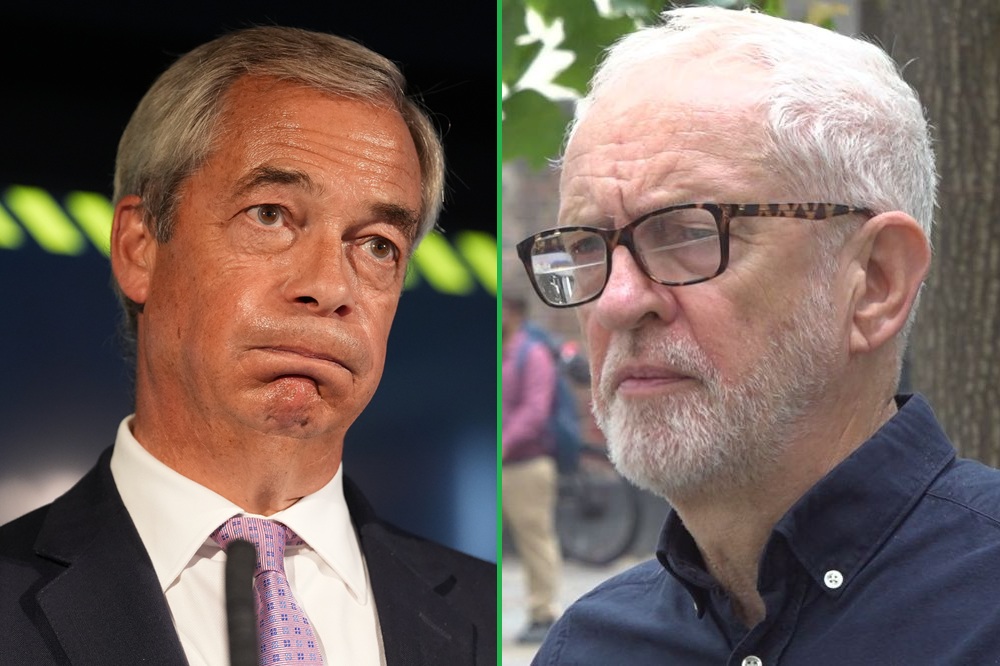 Nigel Farage (L) Photo Lucy North and Jeremy Corbyn. Photo PA Media
Nigel Farage (L) Photo Lucy North and Jeremy Corbyn. Photo PA Media
Jonathan Edwards
Many moons ago, when I was a student at Aberystwyth University, I studied the ‘Three Wales Model’ by Dr Denis Balsom.
Dr Balsom published his theory in the mid-80s, in which he split Wales into three zones to explain voting behaviour defined by class, language and identity.
Our country according to the theory could be divided into Y Fro Gymraeg, Welsh Wales and British Wales. Y Fro encompassed the language heartlands; Welsh Wales the valleys; and British Wales the marches, the south-east coastline and south Pembrokeshire.
The model was created in the lost years between the 1979 and 1997 referendums and was influential in the thinking of devolution proponents on how to win the 1997 vote.
One of the impacts of devolution has been the gradual dismantling of the model with the 2011 law-making referendum vote an obvious case in point, where every single county in Wales, apart from Monmouthshire, supported a Yes vote.
One Wales
One could argue that at that stage a One Wales model was developing, only for the Brexit referendum of 2016 to throw matters into complete flux.
As we approach the next Senedd election, is there an emergent new model that could define the contest, especially as it looks likely that there will now be two insurgent parties fielding candidates from opposite sides of the political spectrum?
From my perch on the Western Bannau, Wales is fast resembling the UK, with political power, cultural influence and economic wealth concentrating in the south-east corner of the country.
It was a fear of this eventuality that led me to support locating the National Assembly in Swansea as opposed to Cardiff following the successful 1997 vote.
Devolution has brought many successes, but it has failed miserably in generating and spreading economic wealth across the whole of the country. The economic strategy to me seems based on the capital alone with the policy for the rest of the south being based on commuter communities to serve Cardiff.
Culturally Cardiff seems increasingly divorced from the rest of the country, largely driven by the migration of young people to the capital in search of economic opportunity.
Devolved governance has led to the growth of a civil service to support its activities and critically an increasingly vibrant civil society infrastructure.
Labour and Plaid Cymru have been co-architects but for different reasons, Labour as it wants to build structures that extend its grip on Wales and Plaid as they see all this as vital to nation building. The politics of the Senedd bubble is very much what some political scientists terms as cosmopolitan.
Distant
There has always been an undercurrent of feeling in the north of the country that Cardiff rule is distant and I suspect that feeling is spreading to other parts of the country.
Up until now the divide between Cardiff and the rest of the country has been kept in check from political revolt as Labour have always been in power in one form or another, and the traditional self-styled insurgent force in Welsh politics, Plaid Cymru, was a part of the club.
However, 2026 will be different. The politics of Nigel Farage from UKIP to the Brexit Party to now Reform has been based on defining against the ‘establishment’ and what he would term cosmopolitan political philosophy.
The new party led by Jeremy Corbyn and Zarah Sultana certainly won’t share the view of Reform when it comes to so-called woke issues, but I suspect their political platform will not be based on serving the Bay Bubble.
Their politics will very much be based on community empowerment in those left behind parts of Wales.
Division lines
Could the division lines as we approach next May therefore be between those who have a stake in the apparatus of Welsh devolved governance and those who haven’t? Those who have will fall behind the traditional Senedd parties.
As for the rest of our fellow citizens, there are now two political parties that will offer a programme which might be far more relevant for how they see the world.
Devolution smashed the Three Wales Model, but has it in fact created a Two Wales Model instead?
Jonathan Edwards was the MP for Carmarthen East and Dinefwr 2010-24
Support our Nation today
For the price of a cup of coffee a month you can help us create an
independent, not-for-profit, national news service for the people of Wales, by
the people of Wales.

